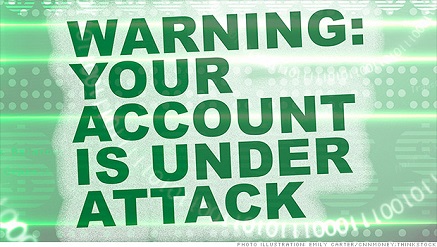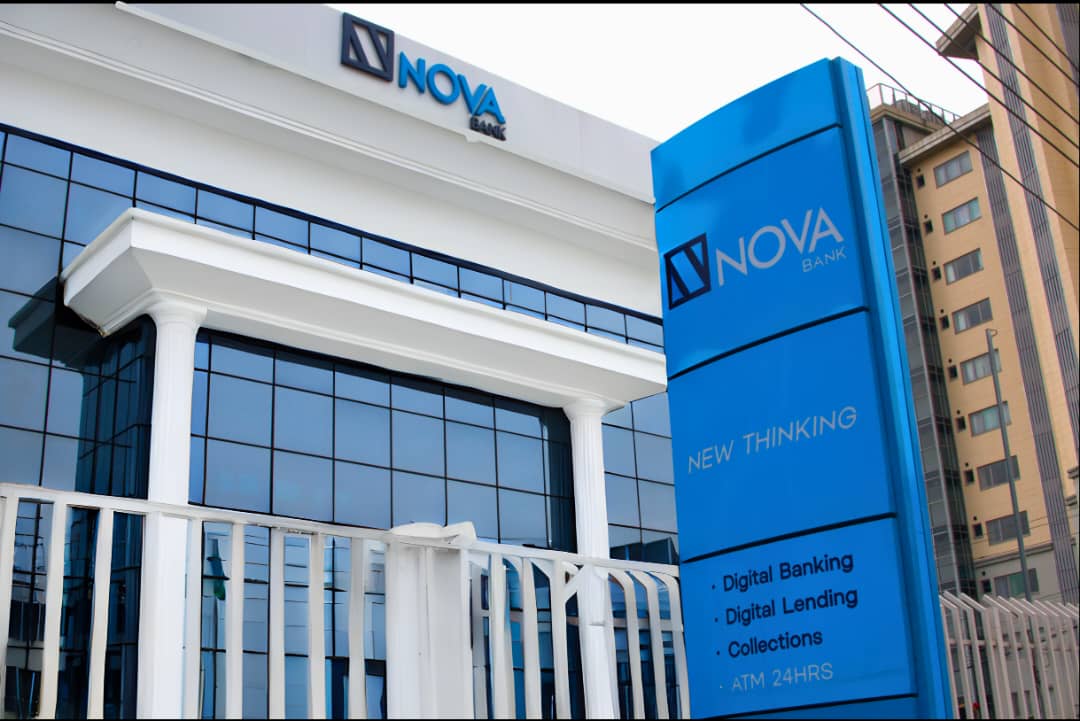E-Financial
7 Ways to Make Your Online Accounts Safer

A day scarcely goes by without a reported case of hacking. Millions of accounts are exposed and all sorts of information released to the public. Recently, over 500 million Yahoo user accounts were hacked.
So, any account can be illegally accessed. You never know because hacking is becoming more sophisticated daily. This makes your online existence vulnerable. You must secure and protect your different web accounts. Jumia Travel, the leading online travel agency, gathers ways you can make them safer.
Close Dormant Accounts
Inactive accounts easily get hacked. It is because they remain unused for a very long time. If you know you are not using a particular account, you should close it. As a rule of thumb, only open accounts you can use often.
Set Up a Password Manager
If you find it difficult to recall your password (s), you should use a password manager. It will save all your login details for you. It can also generate unique passwords for you.
Add Two-Step Verification
The two-step verification has been around for a while now. And it is just a way to make it difficult for your account to be hacked.
The two-step verification prevents anyone from logging into your account from a new device even though they have your username and password. They need a code delivered via SMS to your phone.
Delete Third-Party Account Connections
There’s nothing wrong with allowing other services to connect to your Facebook and Twitter. But you should reduce these connections to your main account. And don’t forget to close third party apps you’re not using in order to block off any potential loopholes for hackers to exploit.
Change Your Passwords Often
We all know that we must not use weak passwords and change your passwords often.
Be Conscious of What You Share Online
Ensure your personal details that can be used to verify your identity, like your home address, and your birthday is not readily available online.
Hackers may need this sensitive information to access your accounts.
Keep Your Software Updated
You should keep your computer software as well as your online accounts updated. But most times these accounts automatically updates itself. You can still check to update others manually.
E-Financial
SEC DG Warns as Crypto Adoption Rises in West Africa Without Proper Regulations

Dr. Emomotimi Agama, Director-General of the Securities and Exchange Commission (SEC) Nigeria, has said that West Africa is fast emerging as a global epicentre for virtual asset adoption, propelled by a young, tech-savvy population and macroeconomic instability.

Speaking at the West Africa Compliance Summit organised by the Inter-Governmental Action Group against Money Laundering in West Africa (GIABA) in Praia, Cape Verde, Dr. Agama warned that while the region’s embrace of digital currencies is accelerating, the absence of coordinated regulation leaves it vulnerable to financial crimes and illicit capital flows.
“With over 60 percent of West Africa’s population under the age of 25 and mobile-first fintech platforms thriving, the region has become a global hotspot for virtual asset adoption,” he said. “But we must act decisively. Regulation is not optional, it is an imperative.”
The summit, themed “Adapting and Thriving in a Complex and Evolving Compliance Landscape,” brought together financial regulators, compliance professionals, and security experts to explore the challenges posed by the rapid rise of virtual assets and decentralised finance (DeFi).
Dr. Agama disclosed that crypto transactions in Nigeria alone surpassed $56 billion in 2024, with citizens increasingly turning to stablecoins such as USDT and USDC to hedge against volatile local currencies. He highlighted the growing trend of “crypto-dollarisation,” noting that young professionals now demand salaries in stablecoins, while businesses are adopting platforms like Binance Pay for cross-border transactions.
“The naira’s depreciation, Ghana’s cedi weakness, and persistent forex shortages have fueled this shift,” he explained. “Traditional remittance channels charge up to 10 percent in fees, while cryptocurrencies offer faster and cheaper alternatives. Over $20 billion in remittances flowed into West Africa last year through crypto channels.”
However, he also cautioned that the same innovations driving financial efficiency are increasingly being exploited by fraudsters and criminal actors. He cited GIABA’s report of $2.1 billion in suspicious crypto-related transactions across West Africa in 2024 alone, including the use of privacy coins by terror financiers to evade detection.
“Unregulated exchanges, artificial market crashes, DeFi ‘rug pulls,’ and Ponzi schemes have wiped out billions in investor funds,” he said. “The recent collapse of the CBEX Ponzi platform is just one of many such incidents. Strong regulation and regional coordination are the only path forward.”
Dr. Agama pointed to Nigeria’s recent legislative progress, especially the enactment of the Investment and Securities Act 2025, which formally classifies virtual assets—including cryptocurrencies, stablecoins, utility tokens, and NFTs—as securities under Section 355(4) and Part I of the Second Schedule.
“Under the new law, all exchanges, wallets, and DeFi platforms must be licensed by the SEC,” he stated. “We’ve also established a Fintech and Innovation Department to facilitate ongoing dialogue with industry stakeholders and adapt our regulations to emerging realities.”
He called on West African governments to harmonise regulatory frameworks and strengthen intelligence-sharing, proposing a Unified Virtual Asset Service Provider (VASP) Licensing System under the ECOWAS framework.
“A crypto trader banned in Nigeria should not find safe haven in Ghana,” he asserted. “Financial crime knows no borders. Our collective future depends on our ability to secure this emerging financial frontier.”
E-Financial
NOVA Bank Deepens Market Presence with New Branches and Regional Focus

NOVA Bank has announced its intention of a strategic shift in its operating license from a national to a regional authorisation, a move, which according to the Bank is aimed at optimising operational efficiency and deepening its impact within key markets.

The management of the Bank noted that the repositioning aligns with the Bank’s long-term vision to consolidate its strengths, streamline its services, and deploy capital more effectively within targeted regions, without compromising its commitment to innovation, customer satisfaction, and sustainable growth.
To this effect, NOVA has applied to the CBN to recategorize its operating license from a National to a Regional Commercial Banking license.
According to the Bank, NOVA maintains a strong financial position, underpinned by robust capital adequacy, liquidity ratios, and a consistent growth trajectory.
NOVA’s Acting Managing Director/Chief Executive Officer, Mrs. Chinwe Iloghalu, explained that following the Central Bank of Nigeria’s (CBN) revised recapitalisation directive in March 2024, NOVA reviewed its growth trajectory and capital utilisation strategy.
“Given the Bank’s current stage of growth, we have chosen the prudent route to optimise what we need, grow efficiently, and scale sustainably. This is a major strategic positioning that will ensure continued efficiency in the deployment of assets and resources,” she said
Mrs. Iloghalu further stated “Indeed, our shareholders have shown strong commitment to ensuring full capitalisation through rights issue by injection of additional 24 billion before end of 2025 to exceed the prescribed capital for regional Banks well ahead of the 2026 CBN deadline”.
In a further affirmation of its strength and stability, Global Credit Rating (GCR) recently reaffirmed NOVA Bank’s BBB rating with a Stable Outlook, citing the Bank’s healthy liquidity profile, improving earnings, and sound asset quality.
The Bank’s audited 2024 financials validate the effectiveness of its growth strategy, recording over 200% year-on-year growth in profit before tax (PBT), alongside improvements across all key financial indicators.
NOVA is set to launch three new branches in the coming weeks, including Owerri, Port Harcourt, and Abuja, to enhance physical access and customer service, while strengthening its digital banking infrastructure to ensure customers continue to enjoy secure, seamless, and convenient banking experiences, anywhere, anytime.
The Chairman of the Board, Mr. Phillips Oduoza, noted that NOVA remains committed to its vision and is thankful for the continued trust of its customers, shareholders, and regulators.
“Every decision we make is deliberate and strategic, guided by sound governance and market insight. Transitioning to a regional license is a recalibration, giving us room to grow optimally, build capacity, and position ourselves for a full national rollout in the next 36 months.” Said Oduoza
E-Financial
West Africa Emerging as Crypto Adoption Epicentre- SEC Boss

West Africa is fast emerging as a global epicentre for virtual asset adoption, propelled by a young, tech-savvy population and macroeconomic instability, according to Dr. Emomotimi Agama, director-general, Securities and Exchange Commission (SEC) Nigeria.

Dr. Emomotimi Agama, DG, SEC
Speaking at the West Africa Compliance Summit organised by the Inter-Governmental Action Group against Money Laundering in West Africa (GIABA) in Praia, Cape Verde, Dr. Agama warned that while the region’s embrace of digital currencies is accelerating, the absence of coordinated regulation leaves it vulnerable to financial crimes and illicit capital flows.
“With over 60 percent of West Africa’s population under the age of 25 and mobile-first fintech platforms thriving, the region has become a global hotspot for virtual asset adoption,” he said. “But we must act decisively. Regulation is not optional, it is an imperative.”
The summit, themed “Adapting and Thriving in a Complex and Evolving Compliance Landscape,” brought together financial regulators, compliance professionals, and security experts to explore the challenges posed by the rapid rise of virtual assets and decentralised finance (DeFi).
Dr. Agama disclosed that crypto transactions in Nigeria alone surpassed $56 billion in 2024, with citizens increasingly turning to stablecoins such as USDT and USDC to hedge against volatile local currencies.
He highlighted the growing trend of “crypto-dollarisation,” noting that young professionals now demand salaries in stablecoins, while businesses are adopting platforms like Binance Pay for cross-border transactions.
“The naira’s depreciation, Ghana’s cedi weakness, and persistent forex shortages have fueled this shift,” he explained.
“Traditional remittance channels charge up to 10 percent in fees, while cryptocurrencies offer faster and cheaper alternatives. Over $20 billion in remittances flowed into West Africa last year through crypto channels.”
However, he also cautioned that the same innovations driving financial efficiency are increasingly being exploited by fraudsters and criminal actors.
He cited GIABA’s report of $2.1 billion in suspicious crypto-related transactions across West Africa in 2024 alone, including the use of privacy coins by terror financiers to evade detection.
“Unregulated exchanges, artificial market crashes, DeFi ‘rug pulls,’ and Ponzi schemes have wiped out billions in investor funds,” he said. “The recent collapse of the CBEX Ponzi platform is just one of many such incidents. Strong regulation and regional coordination are the only path forward.”
Dr. Agama pointed to Nigeria’s recent legislative progress, especially the enactment of the Investment and Securities Act 2025, which formally classifies virtual assets—including cryptocurrencies, stablecoins, utility tokens, and NFTs—as securities under Section 355(4) and Part I of the Second Schedule.
“Under the new law, all exchanges, wallets, and DeFi platforms must be licensed by the SEC,” he stated.
“We’ve also established a Fintech and Innovation Department to facilitate ongoing dialogue with industry stakeholders and adapt our regulations to emerging realities.”
He called on West African governments to harmonise regulatory frameworks and strengthen intelligence-sharing, proposing a Unified Virtual Asset Service Provider (VASP) Licensing System under the ECOWAS framework.
“A crypto trader banned in Nigeria should not find safe haven in Ghana,” he asserted.
“Financial crime knows no borders. Our collective future depends on our ability to secure this emerging financial frontier.”

 General News3 days ago
General News3 days agoNOA Warns of Fake N1000 Notes in Circulation, How to Identify Them

 Telecom3 days ago
Telecom3 days agoMTN @ First-ever CED, Pledges to Address Subscribers’ Concerns

 E-Financial3 days ago
E-Financial3 days agoWest Africa Emerging as Crypto Adoption Epicentre- SEC Boss

 Telecom2 days ago
Telecom2 days agoNCC to Sanction Operators over Regulatory Violations

 General News3 days ago
General News3 days agoNCC, IHS Towers Lead Others To NITRA-ALTON CNII & Telecom Sustainability Conference 2025

 Telecom3 days ago
Telecom3 days agoAirtel Nigeria Raises Infrastructure Spending to $39m

 General News2 days ago
General News2 days agoCustoms Ditches Fast Track Scheme for Authorised Economic Operator

 Broadcasting3 days ago
Broadcasting3 days agoGovernment of Ghana Slams MultiChoice, Insists on DStv Price Cut















